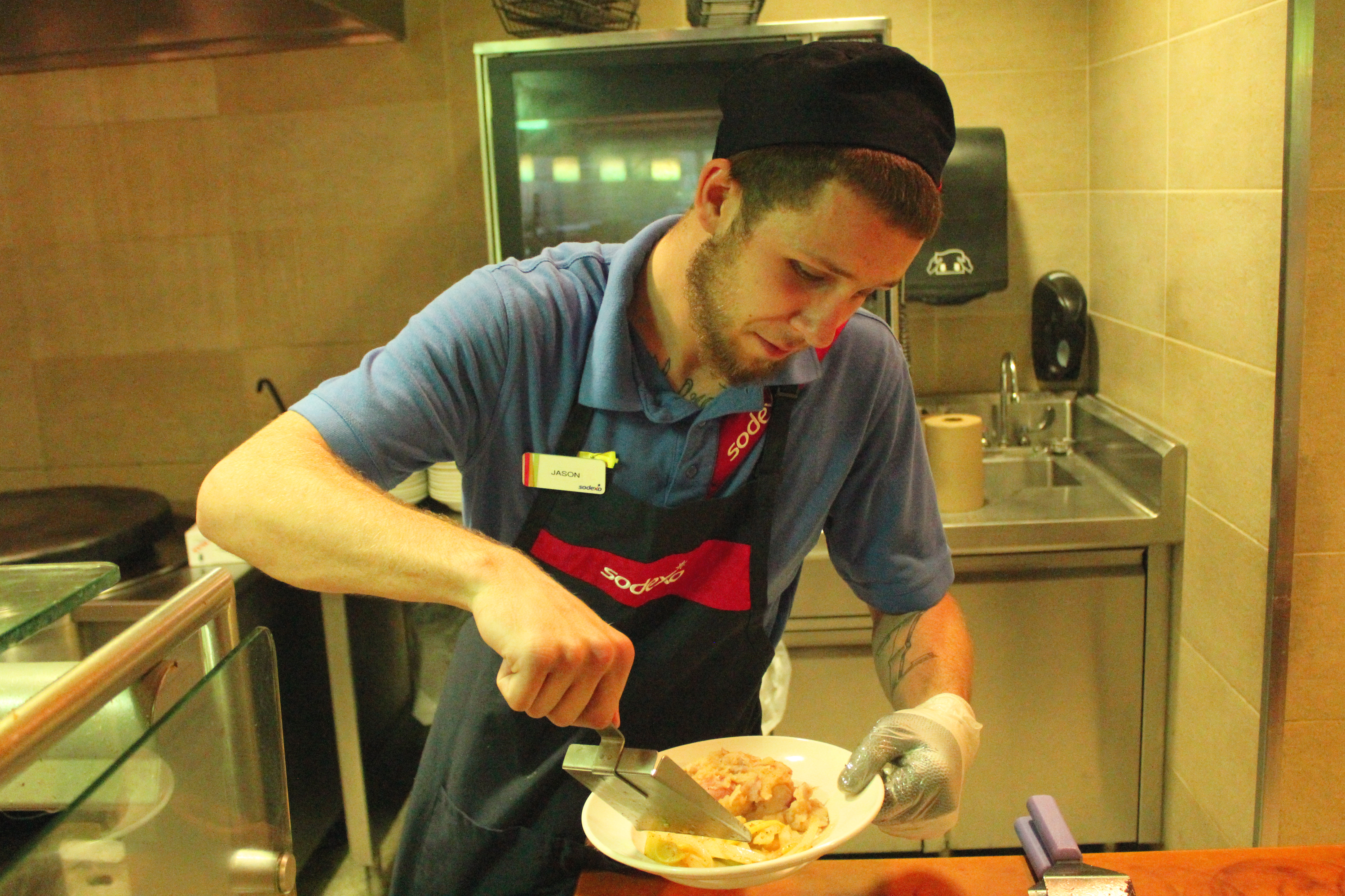The Spanish
tortilla or tortilla de patatas or Spanish omelet, whatever you want to call
it. After doing my presentation with Charles Sheppard of the tortilla de
patatas I am going to leave you the recipe that we used to make it:
- 6 eggs
- 2 potatoes
- Onion
- Olive oil
Okay, eggs,
potatoes and olive oil are the essential products for a Spanish omelet, from
there you can put your imagination to work and be creative, if you like meat
add meet, if you like hot sauce add some hot sauce, cheese, green pepper... whatever
you want to add to them. We used 6 egg and 2 potatoes per omelet, but the
quantity of eggs and potatoes may vary depending of how big you want your omelet
or if you want less or more potatoes
The difference
of the Spanish omelet with other omelets is that it is not common to eat them
by your self. The Spanish omelet has a social side, people usually cook it to
share with others, either with friends or family. If you ever go to Spain you
also can eat ‘la tortilla de patatas’ as a tapa, a small dish or piece of food that
generally accompanies your drink, in this case they will give you a piece of
tortilla with your drink. You also can ask for un ´pincho de tortilla´ and they
will give you a piece of Spanish omelet with a slice of bread and if you are in
Catalonia
With
friends, family or in a bar, the Spanish tortilla is one of those dishes where
people gather around, talk, and share their experiences while enjoying their
meal. Here I leave you a video were they show you how to make a tortilla de
patatas.

































